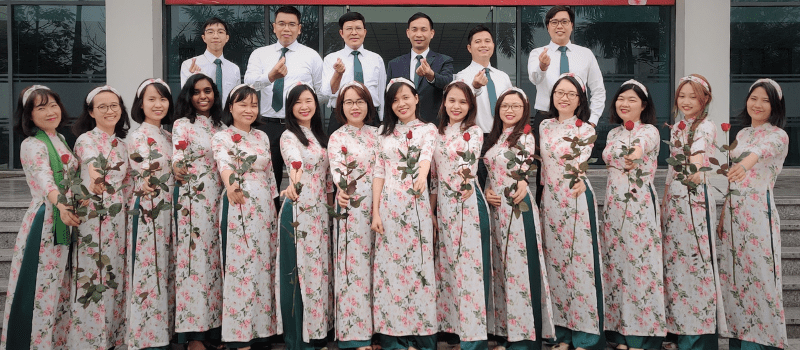Vets Without Borders is recruiting for our 2023 Young Volunteer Program! We're looking for two (2) Small Animal Health Specialist volunteers at Ghana Poultry Network (GAPNET) located near Bolgatanga.
Download Job OverviewJob Details
Job Title: Small Animal Health Specialist
Country: Ghana
Location: Bolgatanga
Partner Organization: Ghana Poultry Network (GAPNET)
Duration: 12 weeks
Start Date: May 2023
Pre-departure Training: VWB/VSF will provide training orientation.
Eligibility: Canadian Citizens and Permanent Residents of Canada only
Language: English (essential)
Academic Requirements: Bachelor’s degree in veterinary pathology/microbiology or related academic discipline
Fundraising: VWB/VSF encourages each volunteer to raise funds towards the organization’s operations.
Volunteer Terms & Conditions
VWB/VSF covers most of the costs of being an overseas volunteer, including:
- Return airfare to placement country
- Visa/permit costs
- The cost of required vaccinations, anti-malarial medication, and overseas emergency travel health insurance
- A monthly living allowance (MLA) that will be paid into the volunteer’s bank account in Canada. The MLA is designed to be sufficient to cover simple housing, basic food requirements, and other typical monthly living expenses.
Our Commitment
Veterinarians Without Borders/Vétérinaires sans Frontière is an equal opportunity employer and values the diversity of our team.
We are committed to inclusive and equitable employment practices and strive to create a workplace that supports diversity, equity, and inclusion. VWB/VSF Canada welcomes applications from all qualified candidates, including members of racialized groups, Indigenous peoples, women, persons with disabilities, and persons of any sexual orientation or gender identity.
Please let us know if you require an accommodation and we will work with you to ensure an equitable hiring process. Thank you for your interest in VWB/VSF Canada.
Overall Goal
The primary purpose of the Small Animal Health Specialist volunteer role is to help increase the income and resiliency levels of small-holder farmers through the adoption of improved veterinary practices in poultry and small ruminant production and health management.
Objectives
- To increase the knowledge and skills of small holder farmers in poultry and small ruminant production and health management
- To enhance the capacity of beneficiary communities to control and manage zoonotic diseases
- To increase the awareness and adoption of one health approaches and practices within project beneficiary communities
The role will involve working directly with community members and GAPNET staff, together with the local country coordinator and liaising with VWB/VSF staff. All Young Volunteer Program participants are supported by a Canadian technical supervisor as well as a staff supervisor at the host organization.
All volunteers are expected to promote gender equality, environmental sustainability, and good governance within their placement responsibilities.
Skills
Essential
- Experience in poultry industry, poultry value chain, poultry production and health management
- Experience in small ruminant production, value chain development, and animal health management
- Ability to support community trainings related to best practices for managing small ruminants and poultry including disease control and feed management
- Effective cross-cultural communication skills
- Commitment to the principles of volunteer cooperation and familiarity with participatory approaches to development, including the promotion of gender equality, good governance, and environmental sustainability
Desirable
- Previous international work/volunteer experience in Ghana or other developing country considered an asset
About the Project: VETS
Volunteers Engaged in Gender Responsive Technical Solutions (VETS), funded through the Volunteer Cooperation Program at Global Affairs Canada, will engage 190 volunteers to work with local partner organizations in Ghana, Kenya, Senegal, Laos, Cambodia, and Vietnam.
Volunteers will help create integrated animal health systems to increase the livelihoods and household nutrition of small-scale farmers. The VETS program utilizes the skills of volunteers to build local partner capacity to support community members, primarily women, to reduce poverty. Through improved production of livestock and crops, volunteers help improve family income and nutrition.
The VETS program is built around the One Health concept, which recognizes that the health of people, animals, and the natural environment are interconnected. This project promotes the production of more and better food and increased incomes from livestock, all the while promoting land rehabilitation and conservation for sustainable development.
About Veterinarians Without Borders
In the global south, more than 90 percent of food animals are raised by subsistence farmers. However, small-scale livestock producers, the majority of whom are women, have very limited access to quality and affordable animal health services.
Aside from the risks associated with the loss of valuable livestock that provides important protein and/or income for low-income households, zoonotic diseases that can be passed from animals to humans offer a very real threat to human health on a wider scale.
Veterinarians Without Borders/Vétérinaires sans frontières (VWB/VSF) works for and with communities in need to foster the health of animals, people, and the environments that sustain us. VWB/VSF works nationally and internationally to train animal health workers, increase food security, and improve animal and public health.
VWB/VSF provides overseas volunteer placements for veterinarians and other animal and public health professionals.





